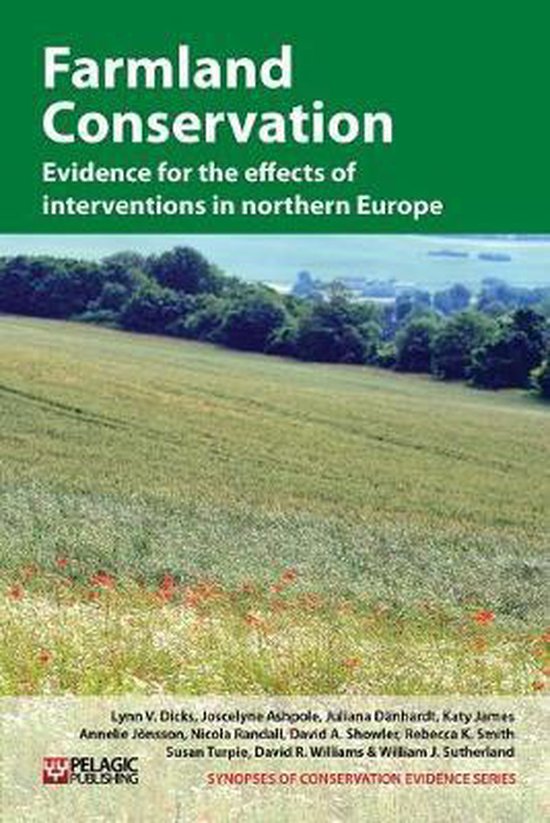Synopses of conservation evidence farmland conservation

2 - 3 weken
This synopsis covers evidence for the effects of conservation interventions for native farmland wildlife. It is restricted to evidence captured on the website www.conservationevidence.com. The list of interventions was organized into categories based on the IUCN classifications of direct threats and conservation actions.
This synopsis covers evidence for the effects of conservation interventions for native farmland wildlife. It is restricted to evidence captured on the website www.conservationevidence.com. It includes papers published in the journal Conservation Evidence, evidence summarized on our database and systematic reviews collated by the Collaboration for Environmental Evidence. It is the thrid volume in the series Synopses of Conservation Evidence.
Evidence was collected from all European countries west of Russia, but not those south of France, Switzerland, Austria, Hungary and Romania.
A list of interventions to conserve wildlife on farmland was developed collaboratively by a team of thirteen experts. A number of interventions that are not currently agri-environment options were added during this process, such as ‘Provide nest boxes for bees (solitary or bumblebees)’ and ‘Implement food labelling schemes relating to biodiversity-friendly farming’. Interventions relating to the creation or management of habitats not considered commercial farmland (such as lowland heath, salt marsh and farm woodland) were removed.
The list of interventions was organized into categories based on the International Union for the Conservation of Nature (IUCN) classifications of direct threats and conservation actions. Interventions that fall under the threat category ‘Agriculture’ are grouped by farming system, with separate sections for interventions that apply to arable or livestock farms, or across all farming types.
- 1 Bekijk alle specificaties
Taal: en
Bindwijze: Hardcover
Oorspronkelijke releasedatum: 07 april 2014
Aantal pagina's: 400
Illustraties: Nee
Hoofdauteur: Lynn V. Dicks
Tweede Auteur: Joscelyne E. Ashpole
Co Auteur: David A. Showler
Hoofduitgeverij: Pelagic Publishing
Extra groot lettertype: Nee
Product breedte: 156 mm
Product hoogte: 25 mm
Product lengte: 234 mm
Studieboek: Nee
Verpakking breedte: 156 mm
Verpakking hoogte: 234 mm
Verpakking lengte: 234 mm
Verpakkingsgewicht: 855 g
EAN: 9781907807176